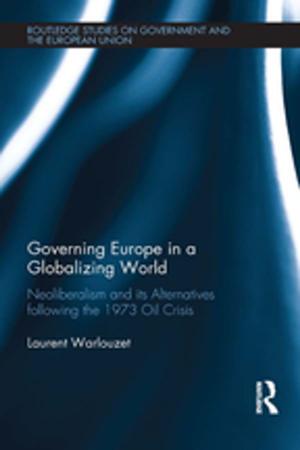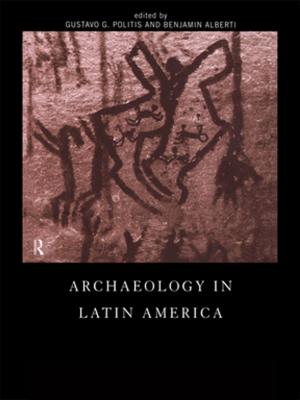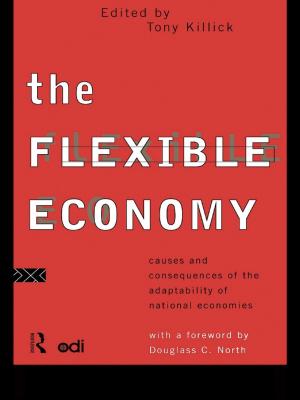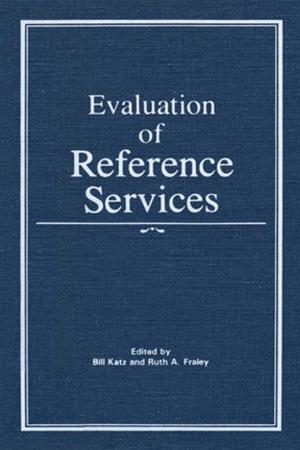Ecocriticism and the Poiesis of Form
Holding on to Proteus
Fiction & Literature, Anthologies, Literary Theory & Criticism| Author: | Aaron M. Moe | ISBN: | 9780429590337 |
| Publisher: | Taylor and Francis | Publication: | February 14, 2019 |
| Imprint: | Routledge | Language: | English |
| Author: | Aaron M. Moe |
| ISBN: | 9780429590337 |
| Publisher: | Taylor and Francis |
| Publication: | February 14, 2019 |
| Imprint: | Routledge |
| Language: | English |
Ecocriticism and the Poiesis of Form: Holding on to Proteus demonstrates how a fractal imagination helps one hold the form of a poem within the reaches of Deep Time, and it explores the kinship between the hazy, liminal moment when Sound becomes Syllable and the hazy, liminal moment when the sage energy of the Atom made a leap toward the gaze of the first cell, to echo Merwin. Moe distills his methodology as follows: "My work?—I point," asserted the aphorism. "That’s what I do." To point, the project integrates a wide range of interdisciplinary ideas—including biosemiotics, fractals, phi, trauma theory, the Mandelbrot Set, hyperobjects, meditative chants, Goethe’s morphology, Ramanujan’s summation, a spiderweb’s sonic properties, and Thoreau’s sense of the plant-like burgeoning force of an Atom—in order to open up multiple trajectories. In this context, the volume foregrounds the insights of poets/storytellers including Hillman, Snyder, Anzaldúa, EEC, okpik, Whitman, Dickinson, Gladding, Melville, Morrison, and Toomer, for they are most attentive to that liminal moment when the vibratory hum in language, and in the cosmos, turns kinetic. As this volume draws on a wide range of writers from many backgrounds, it allows the myriad voices to engage with one another across differences in race, gender, and ethnicity. These writers show us how, to echo Dickinson, the "Freight / Of a delivered Syllable - " can split and how the energy unleashed came from, and points us back toward, the energy (un)making the forms of Gaia.The starting point for discussing the energy of a poem can no longer begin with the human; rather, Holding on explores how the poem’s energy is but a sliver of a hyperobject "massively distributed" throughout the cosmos—a sage energy that brings forth form.
Ecocriticism and the Poiesis of Form: Holding on to Proteus demonstrates how a fractal imagination helps one hold the form of a poem within the reaches of Deep Time, and it explores the kinship between the hazy, liminal moment when Sound becomes Syllable and the hazy, liminal moment when the sage energy of the Atom made a leap toward the gaze of the first cell, to echo Merwin. Moe distills his methodology as follows: "My work?—I point," asserted the aphorism. "That’s what I do." To point, the project integrates a wide range of interdisciplinary ideas—including biosemiotics, fractals, phi, trauma theory, the Mandelbrot Set, hyperobjects, meditative chants, Goethe’s morphology, Ramanujan’s summation, a spiderweb’s sonic properties, and Thoreau’s sense of the plant-like burgeoning force of an Atom—in order to open up multiple trajectories. In this context, the volume foregrounds the insights of poets/storytellers including Hillman, Snyder, Anzaldúa, EEC, okpik, Whitman, Dickinson, Gladding, Melville, Morrison, and Toomer, for they are most attentive to that liminal moment when the vibratory hum in language, and in the cosmos, turns kinetic. As this volume draws on a wide range of writers from many backgrounds, it allows the myriad voices to engage with one another across differences in race, gender, and ethnicity. These writers show us how, to echo Dickinson, the "Freight / Of a delivered Syllable - " can split and how the energy unleashed came from, and points us back toward, the energy (un)making the forms of Gaia.The starting point for discussing the energy of a poem can no longer begin with the human; rather, Holding on explores how the poem’s energy is but a sliver of a hyperobject "massively distributed" throughout the cosmos—a sage energy that brings forth form.















